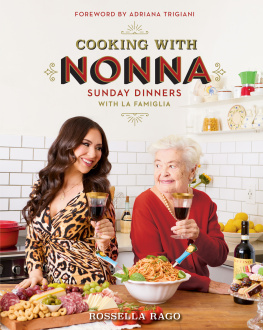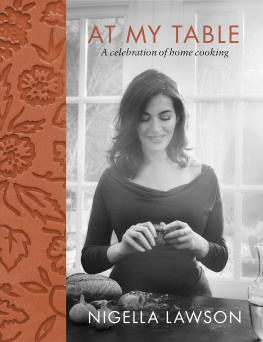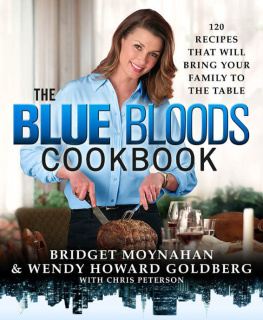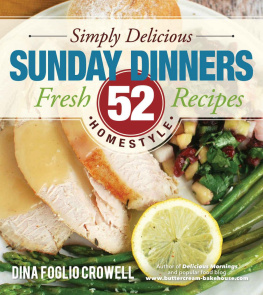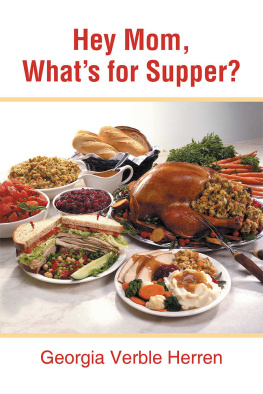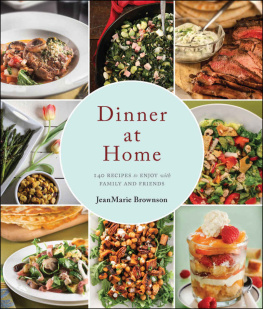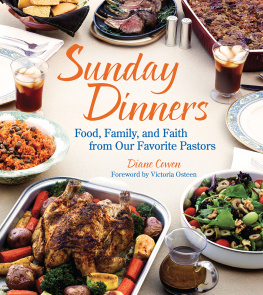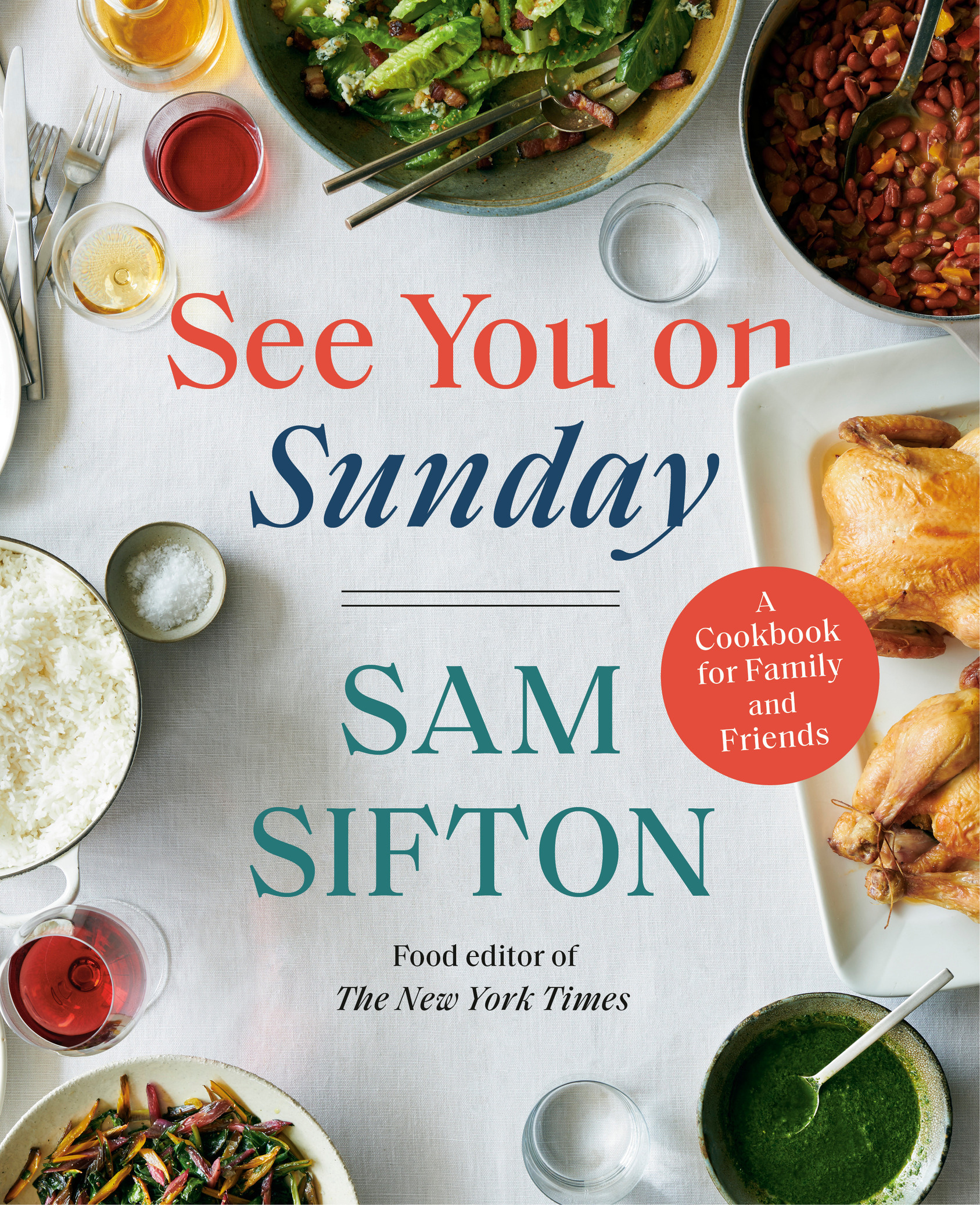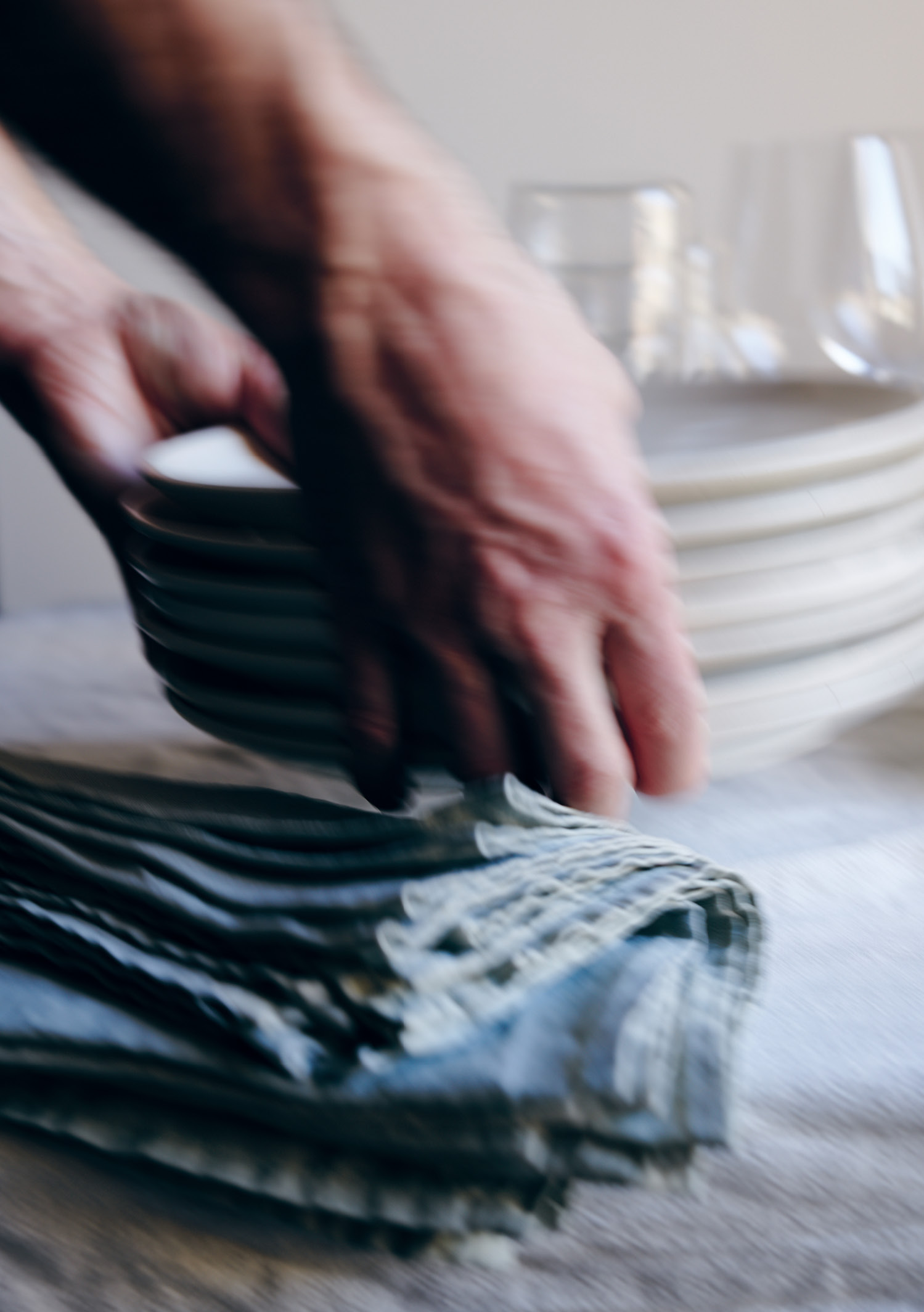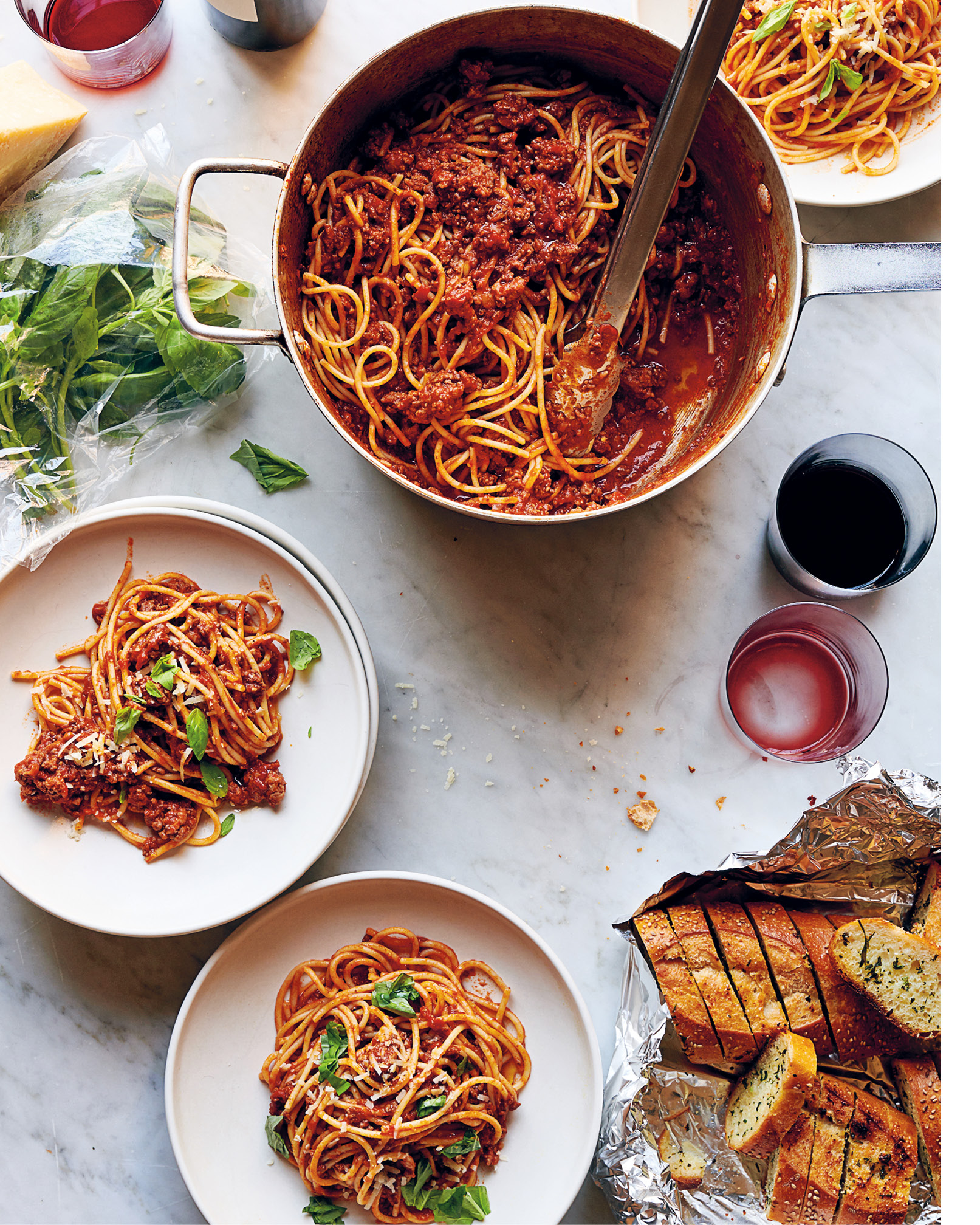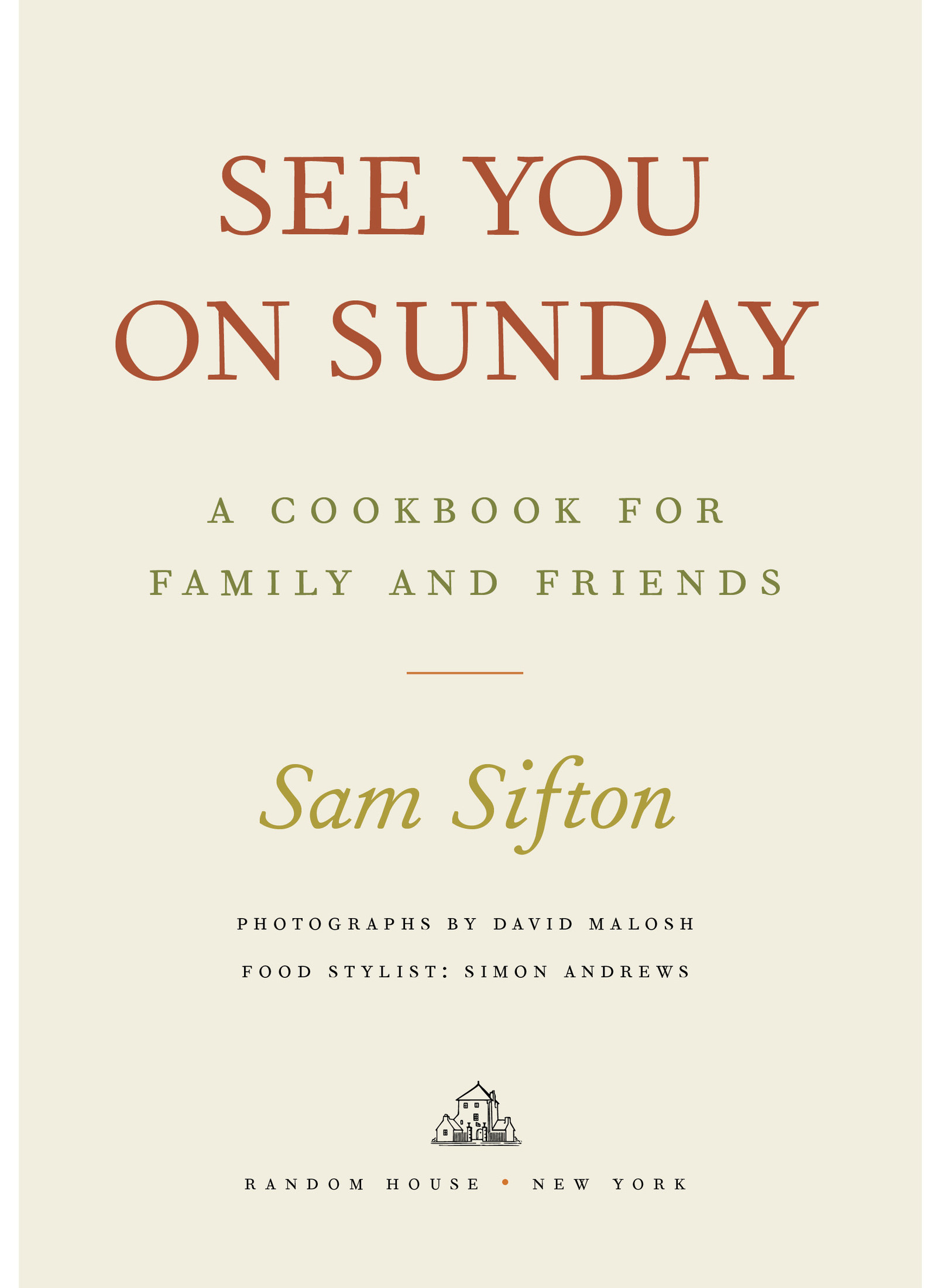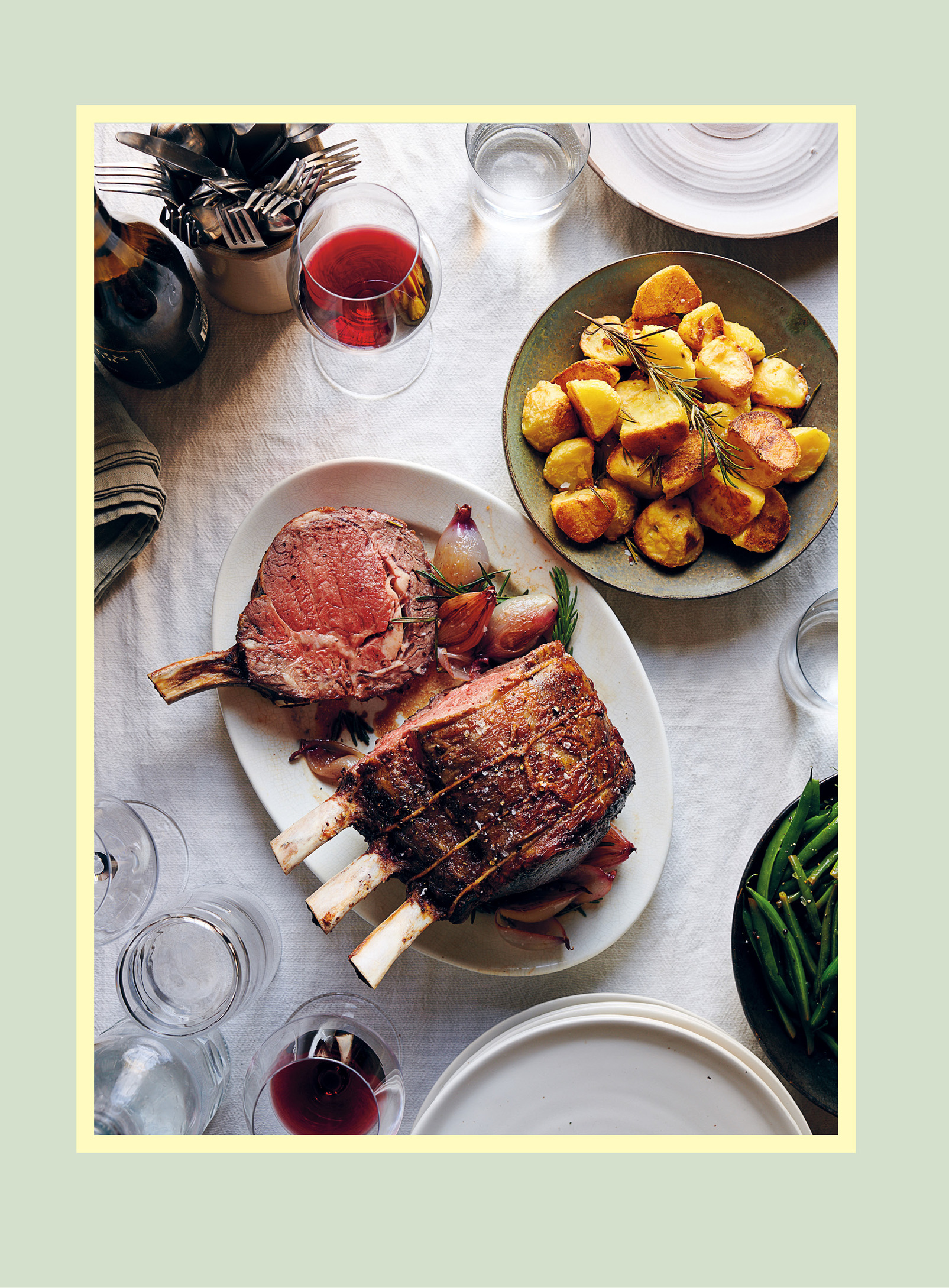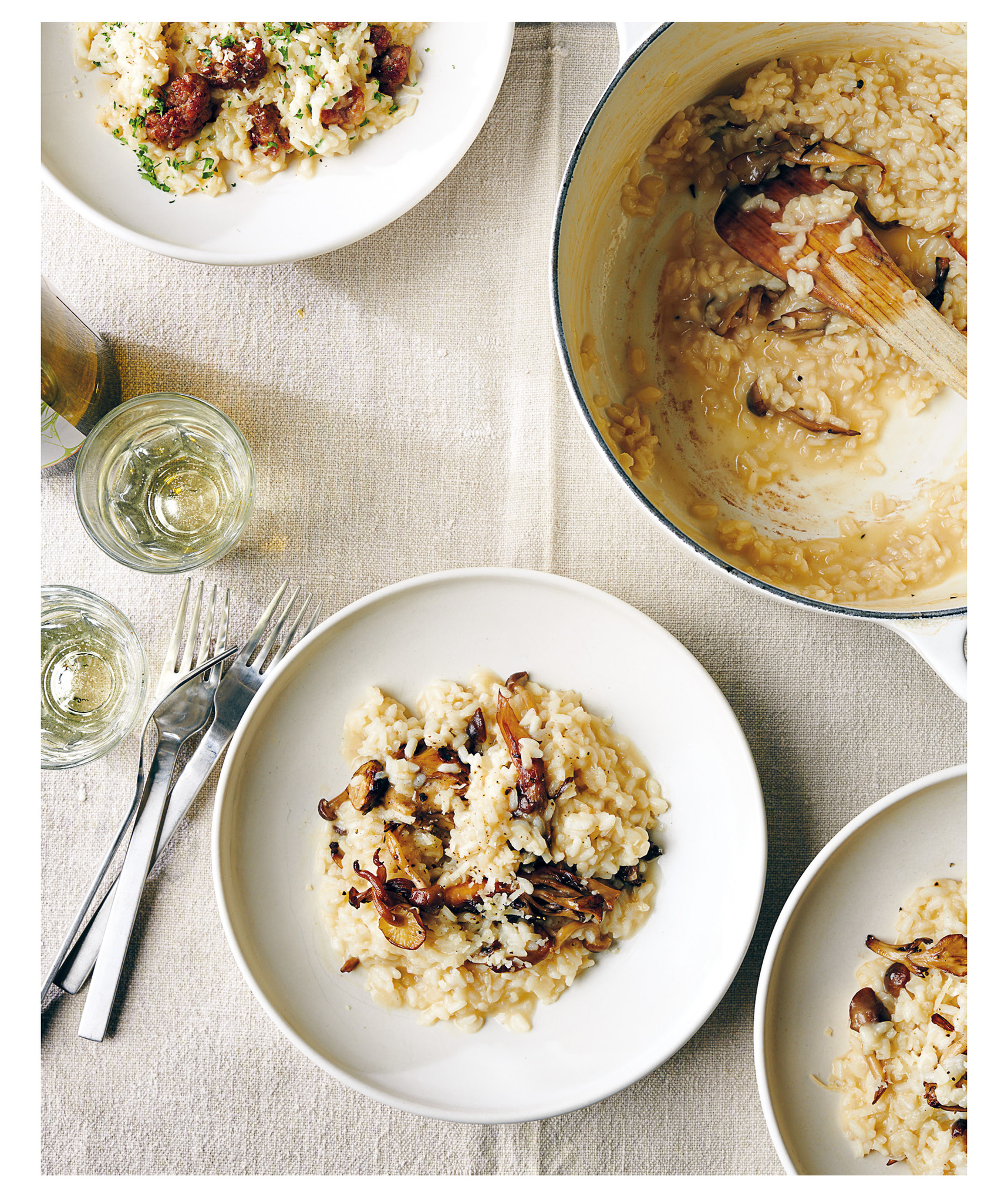Sam Sifton - See You on Sunday: A Cookbook for Family and Friends
Here you can read online Sam Sifton - See You on Sunday: A Cookbook for Family and Friends full text of the book (entire story) in english for free. Download pdf and epub, get meaning, cover and reviews about this ebook. year: 2020, publisher: Random House, genre: Home and family. Description of the work, (preface) as well as reviews are available. Best literature library LitArk.com created for fans of good reading and offers a wide selection of genres:
Romance novel
Science fiction
Adventure
Detective
Science
History
Home and family
Prose
Art
Politics
Computer
Non-fiction
Religion
Business
Children
Humor
Choose a favorite category and find really read worthwhile books. Enjoy immersion in the world of imagination, feel the emotions of the characters or learn something new for yourself, make an fascinating discovery.
- Book:See You on Sunday: A Cookbook for Family and Friends
- Author:
- Publisher:Random House
- Genre:
- Year:2020
- Rating:3 / 5
- Favourites:Add to favourites
- Your mark:
See You on Sunday: A Cookbook for Family and Friends: summary, description and annotation
We offer to read an annotation, description, summary or preface (depends on what the author of the book "See You on Sunday: A Cookbook for Family and Friends" wrote himself). If you haven't found the necessary information about the book — write in the comments, we will try to find it.
NAMED ONE OF THE BEST COOKBOOKS OF THE YEAR BY NPR Town & CountryGarden & GunPeople are lonely, Sam Sifton writes. They want to be part of something, even when they cant identify that longing as a need. They show up. Feed them. It isnt much more complicated than that. Regular dinners with family and friends, he argues, are a metaphor for connection, a space where memories can be shared as easily as salt or hot sauce, where deliciousness reigns. The point of Sunday supper is to gather around a table with good company and eat.From years spent talking to restaurant chefs, cookbook authors, and home cooks in connection with his daily work at The New York Times, Sam Siftons See You on Sunday is a book to make those dinners possible. It is a guide to preparing meals for groups larger than the average American family (though everything here can be scaled down, or up). The 200 recipes are mostly simple and inexpensive (You are not a feudal landowner entertaining the serfs), and they derive from decades spent cooking for family and groups ranging from six to sixty.From big meats to big pots, with a few words on salad, and a diatribe on the needless complexity of desserts, See You on Sunday is an indispensable addition to any home cooks library. From how to shuck an oyster to the perfection of Mallomars with flutes of milk, from the joys of grilled eggplant to those of gumbo and bog, this book is devoted to the preparation of delicious proteins and grains, vegetables and desserts, taco nights and pizza parties.
Sam Sifton: author's other books
Who wrote See You on Sunday: A Cookbook for Family and Friends? Find out the surname, the name of the author of the book and a list of all author's works by series.




